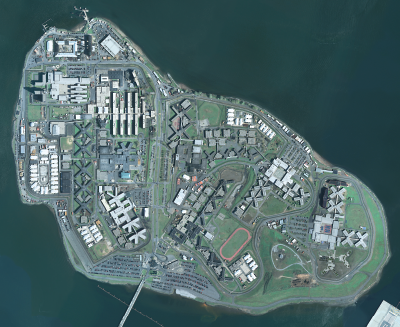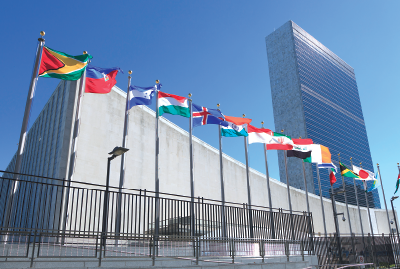Following the success of the educational tour of a Naval medical ship at last year’s Annual Meeting, APA is offering two guided tours at this year’s event. The 2018 EduTours will take participants to a pair of iconic New York City landmarks: Rikers Island and the United Nations (UN) headquarters. The two institutions serve different purposes, but each is a place where psychiatric knowledge is needed to help vulnerable populations.
Rikers Island
Rikers Island may be a jail, but it is more than that: this large complex situated on the East River between Queens and the Bronx is one of the largest mental health providers in New York City. Every day, Rikers staff treat patients with a wide range of problems, including substance use disorders, intellectual disabilities, and severe mental illness (SMI).
Levi Fishman, associate director of public affairs for Rikers Island, told Psychiatric News, “Once people arrive, we strive to give them the best care possible.”
The tour will include visits to several facilities used for psychiatric treatment. Among these are Rikers main Mental Health Center and the complex’s methadone clinic. Visitors will also be shown the more intensive CAPS (Clinical Alternative to Punitive Segregation) and PACE (Program for Accelerated Clinical Effectiveness) units in which inmates with SMI or a complex psychiatric diagnosis are treated.
Another stop will be the Rose M. Singer Center, a detention facility for women that includes the nation’s first jail-based baby nursery. Ford said this part of the tour will be used to discuss the differences between men and women in terms of the problems that bring them to a correctional facility.
After the tour, staff from the Correctional Health Services and Department of Corrections will hold a debriefing session with participants and discuss how the staff collaborate to balance patient recovery with patient and staff security.
“We hope attendees will get a broad picture of what a patient with mental illness goes through in jail,” said Elizabeth Ford, M.D., the chief of psychiatry for Correctional Health Services in New York City and tour organizer. “Remember, this is an environment not designed to be therapeutic.”
Ford said that she hopes attendees will use what they learned on the tour when dealing with their own patients—probably most psychiatrists have helped a patient who has spent at least a night in jail. This educational experience can give psychiatrists a better perspective on an integral component of community mental health.
“Jails are often seen as separate and remote, but they are transitory centers,” Ford said. “They are part of a community like any other civic institution.”
UN Headquarters
For psychiatrists interested in international affairs, the EduTour of the UN headquarters will provide an invaluable opportunity to learn about diplomacy and global cooperation, noted Vivian Pender, M.D., a clinical associate professor of psychiatry at Weill Cornell Medical College and leader of this event. She is also the APA Area 2 trustee. “The UN is a microcosm of the whole world,” she said.
Where else can one mingle with ambassadors and government ministers from every nation or attend council sessions dealing with issues such as global economic development or improving the welfare of refugees? “I can talk about the UN at length,” said Pender, who has been a consultant psychiatrist to the UN for over 20 years. “But just one look is worth more than anything I can say.”
And psychiatrists should be visible around the UN, Pender added, since the World Health Organization (WHO), which is a UN agency, considers mental illness a significant global problem. In fact, in 2014 APA was awarded “special consultant” status with the UN, making APA an accredited organization tasked with advising the UN on mental health issues.
For this tour, attendees will see many of the building’s meeting and assembly rooms as they learn about the history of this organization, from the failed experiment that was Woodrow Wilson’s League of Nations to the UN’s role in modern conflicts like the Syrian crisis. If circumstances permit, attendees might even sit in on a council session or other meeting. Afterward the group will hold a dialogue with one or two UN staff about global mental health issues.
Pender told Psychiatric News that the global nature of mental health is twofold. Not only is mental illness a serious health problem in both developed and developing nations, but also the visceral nature of crisis and trauma has far-reaching effects.
“What happens in one part of the world can affect the well-being of people in another,” Pender said. ■
The visit to Rikers Island Correctional Facility will be held Monday, May 7, and the visit to the UN Headquarters will be held Tuesday, May 8. More information can be accessed
here. There is an additional registration fee for participation.


